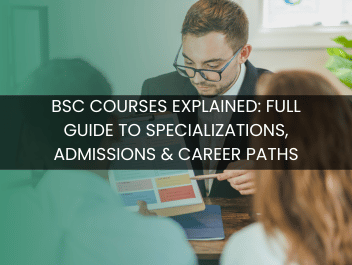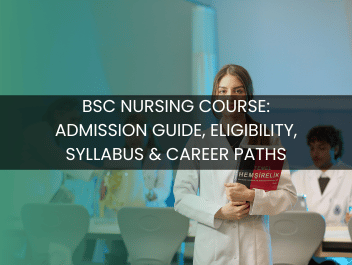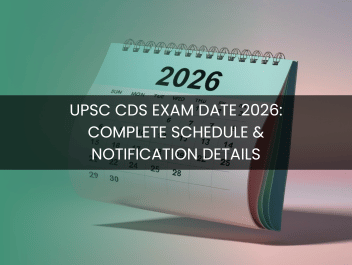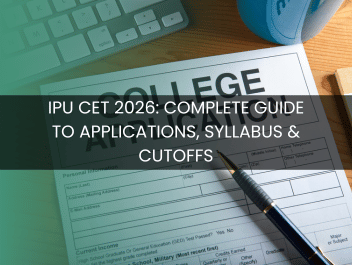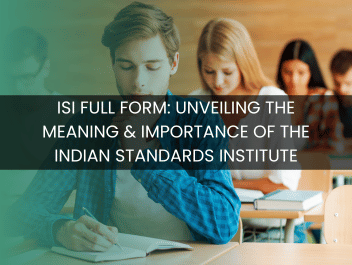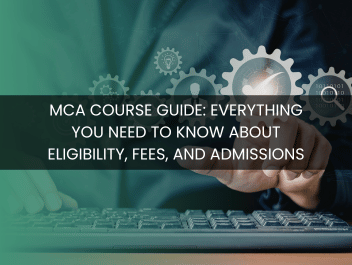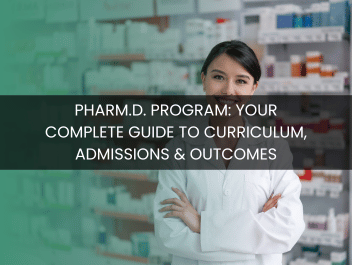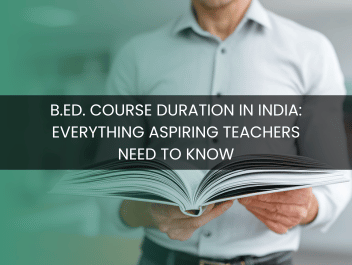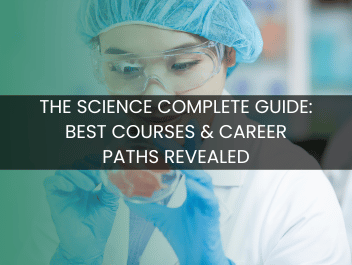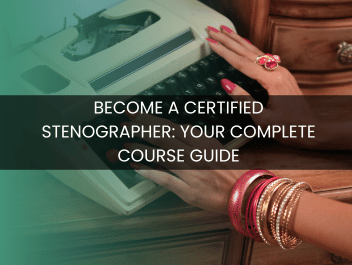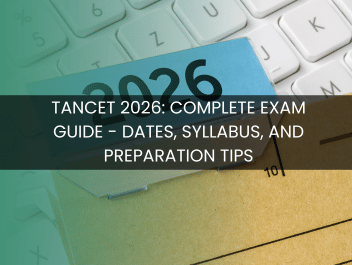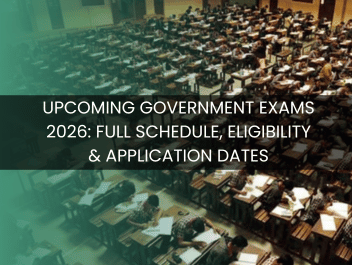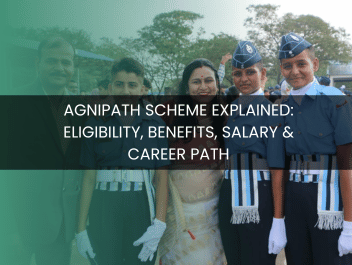
Top Strategies for Responding to Tell Me About Yourself in a Student Interview
Navigating the notorious "Tell Me About Yourself" question in a student interview can feel daunting, yet mastering it is crucial for leaving a memorable impression. This question serves as an icebreaker, setting the tone for the entire conversation, and is often a chance to highlight your strongest attributes and illustrate your potential. By understanding how to strategically craft your response, you can turn this common query into an opportunity to shine.
In our comprehensive guide, we'll delve into the essence of the "Tell Me About Yourself" question, unraveling the purpose behind it and teaching you how to structure your answers effectively. From emphasizing your present status and past experiences to showcasing your aspirations, personality, and skills, we offer actionable strategies that can be tailored to resonate with different industries. You'll gain insights into aligning your goals with a company's mission and preparing for various interview formats, empowering you to tackle this question with finesse.
Join us as we explore top strategies and provide sample answers specifically designed for students, fresh graduates, and college-goers, ensuring that your responses are both authentic and impactful. Whether you’re crafting a "tell me about yourself example answer for fresh graduate" or preparing a "tell me about yourself for students" scenario, this article will arm you with the necessary tools to navigate any interview with confidence and composure.
Table of Content
- 1. Understanding the Question's Purpose
- 2. Present Status: Who You Are Now
- 3. Highlighting Relevant Past Experiences
- 4. Expressing Future Aspirations
- 5. Showcasing Your Personality and Soft Skills
- 6. Key Soft Skills to Highlight:
- 7. Example Answer:
- 8. Tailoring Your Response to the Industry
- 9. Practicing for Conciseness and Naturalness
- 10. Researching the Company and Audience
- 11. Avoiding Common Pitfalls and Mistakes
- 12. Demonstrating Genuine Interest in the Role
- 13. Aligning Your Goals with the Company's Mission
- 14. Preparing for Different Interview Formats
- 15. Sample Answer Breakdown: What Works and Why
Understanding the Question's Purpose
Understanding the purpose of the question "Tell me about yourself" is vital for students during interviews. This common interview question helps interviewers gauge your communication skills, relevant experiences, and how well you can sell yourself.
Here are some key points to consider:
- Structure Your Answer: Start with a brief introduction, including your educational background and any relevant experience. College students can highlight internships or specific courses related to the job. Fresh graduates may focus on their academic achievements and soft skills.
- Highlight Key Skills: Mention key skills like problem-solving, communication, or technical skills that align with the job description.
- Relate to Career Goals: Explain how your background and skills connect to your career goals and the role you’re applying for.
Sample Breakdown:
|
Element |
Suggested Content |
|
Introduction |
Name, academic background |
|
Skills |
Relevant skills such as coding, analytical skills |
|
Career Goals |
How the role fits into your career path |
Understanding these elements can help students answer the question effectively, improving their chances in job interviews.
Structuring Your Response Strategically
Structuring your response strategically is crucial, especially when faced with common interview questions like "tell me about yourself." This question is common in many settings, from college admissions to job interviews.
Paragraph Structure:
- Brief Introduction: Begin with your name and a few key details about your academic background. For example, "My name is Alex, and I'm a recent Business Administration graduate from XYZ University."
- Highlight Skills and Experiences: Share a mix of your relevant skills. For fresh graduates, mention educational background and any internships or projects. Include both soft skills like communication skills and technical skills.
- Career Goals: Briefly outline your future plans. For instance, "I am eager to leverage my analytical skills in a digital marketing role."
- Tailor to Audience: Customize your response for your audience, whether it's for a college setting or a professional environment.
List of Tips:
- Keep it concise.
- Align your skills with the opportunity.
- Practice your answer to sound natural and confident.
By following this structure, you can craft a compelling and well-organized response that resonates with your listener.
Present Status: Who You Are Now
Understanding your present status is crucial in shaping your future path. Whether you're a student preparing for interviews or a recent graduate entering the workforce, how you define your current self matters.
1. Educational Background
Highlight your academic journey, showcasing relevant courses and accomplishments. For college students, it's useful to detail majors, minors, or any specific projects you've completed.2. Relevant Skills
Identify the skills you've developed. This could include soft skills like communication and problem-solving or technical abilities such as coding and digital marketing.3. Current Role
If you're juggling school and a part-time job, briefly describe this role. Emphasize any hands-on experience that aligns with your career goals.4. Career Goals
Outline clear career goals. Where do you see yourself after graduation? This can guide you in choosing relevant experiences and skills to focus on.Sample Table: Skills Overview
|
Skill Type |
Examples |
|
Soft Skills |
Communication, Problem-solving |
|
Technical Skills |
Coding, Digital Marketing |
Answering the "tell me about yourself" question effectively can set the stage for a successful interview, shaping your professional background into a compelling narrative.
Highlighting Relevant Past Experiences
Highlighting Relevant Past Experiences is crucial in job interviews as it helps showcase your qualifications and fit for the role. Employers seek candidates who can demonstrate relevant skills and transferable skills gained from previous roles.
Key Points to Consider:
- Identify Relevant Experiences: Tailor your
responses to match the job description, emphasizing experiences that align with
required skills.
- Showcase Skills:
- Technical Skills: Highlight specific technical skills gained from past
roles or projects.
- Soft Skills: Demonstrate communication skills, analytical skills, and
problem-solving skills that apply to fast-paced environments or high-pressure
settings.
- Use Real Examples: Share anecdotes that illustrate your hands-on
experience and career path. Mention your educational background if it's
relevant.
- Quantify Achievements: Use numbers to highlight your track record of
success, such as "I improved efficiency by 20%."
Sample Structure:
- Context: Describe your previous role and responsibilities.
- Action: Explain the actions you took to address challenges.
- Result: Highlight the positive outcomes.
Highlighting these experiences shows how your past can drive future success, making you an attractive candidate.
Expressing Future Aspirations
Expressing future aspirations is an essential skill, especially for students preparing for job interviews or college applications. When answering "tell me about yourself" questions, clearly articulating your goals can set you apart. For instance, a tell me about yourself examples for students might include their interest in pursuing a specific career path, like digital marketing or coding.
To craft an impactful my self question answer, consider including your current role and academic background. Highlight your educational background and any hands-on experience or relevant skills, such as problem-solving skills or communication skills, that align with your career goals.
Here's a tell me about yourself for students example:
"I am a recent graduate with a degree in Marketing. I aim to work in digital marketing, leveraging my strong analytical skills and creativity to develop engaging campaigns."
Consider outlining your transferable skills in a tell me about your skills sample answer, like soft skills and technical skills, which help in fast-paced environments.
In conclusion, whether you're providing a tell me about yourself sample answer for fresh graduate interviews or writing a tell me about yourself example answer for fresh graduate applications, focusing on your aspirations and relevant experience can lead the conversation positively.
Showcasing Your Personality and Soft Skills
When crafting your "tell me about yourself" example for students, showcasing your personality and soft skills is vital. Employers seek more than just technical skills; they value well-rounded individuals. Here's how you can highlight your strengths:
Key Soft Skills to Highlight:
- Communication Skills: Be clear and articulate.
- Problem-Solving Skills: Share examples from past experiences.
- Team Collaboration: Mention projects or group activities.
- Adaptability: Showcase your ability to thrive in fast-paced
environments.
Sample Answer Structure:
- Introduction: Briefly introduce your academic background and current role.
- Skills and Experience: Highlight relevant skills like communication skills or analytical skills. Mention any hands-on experience.
- Personality Traits: Show your enthusiasm and career goals.
- Conclusion: Summarize your career path and how you align with the position.
Example Answer:
"I am a college student majoring in digital marketing. I have developed strong problem-solving skills through various projects. My communication skills have been honed by leading group assignments. I aim to leverage my teamwork and adaptability in a fast-paced environment."
Focus on creating a strong narrative that encompasses both your skills and personality. This approach ensures a compelling, well-rounded self-introduction.
Tailoring Your Response to the Industry
When preparing for job interviews, crafting the perfect "tell me about yourself" answer is crucial. Different industries value different skills and experiences, so tailor your response accordingly.
Key Steps:
- Research the Industry: Understand the skills most valued. For example, technical skills are key in IT, while communication skills are crucial in sales roles.
- Highlight Relevant Experience: Your background and any hands-on experience that aligns with the industry should be emphasized. For instance, if you're entering digital marketing, mention your previous roles in fast-paced environments and any relevant experience or skill.
- Showcase Transferable Skills: Skills like problem-solving and analytical skills are always in demand. Tailor these to fit the industry-specific requirements.
- Align with Career Goals: Convey how this role fits within your overall career path and goals.
Example:
For a tech role, you might say: "My coding skills developed during my academic background are complemented by my analytical skills, making me adept in high-pressure environments."
This process ensures your answers resonate with interviewers and aligns with their expectations, increasing your chances of a successful interview.
Focusing on Academic and Extracurricular Synergies
Academic and extracurricular activities are vital parts of a student's life. Balancing these helps develop a holistic skill set. Academic pursuits provide the foundation of knowledge. Meanwhile, extracurricular activities improve soft skills like communication and teamwork.
Academic Focus:
- Strengthens analytical skills
- Builds a solid educational background
- Prepares for fast-paced environments
Extracurricular Benefits:
- Enhances problem-solving skills
- Promotes leadership and interpersonal skills
Students aiming for synergy between these areas will find success. A student who excels in academics and participates in clubs shows potential in high-pressure environments. They develop a track record for managing multiple tasks.
A balanced approach allows students to apply theoretical knowledge in real-world scenarios. This translates to transferable skills valuable in career paths, making them attractive to future employers.
Table of Synergies:
|
Academic Skills |
Extracurricular Skills |
|
Analytical Skills |
Communication Skills |
|
Educational Background |
Leadership |
|
Problem-Solving |
Teamwork |
Focusing on both areas paves the way for a successful future, enhancing college experiences and career goals.
Practicing for Conciseness and Naturalness
Practicing conciseness in communication enhances clarity and effectiveness. Here are a few tips to help achieve this:
Tips for Conciseness
- Use Simple Language: Avoid jargon and complex
words. Keep sentences straightforward.
- Eliminate Redundancies: Cut unnecessary words. Say, "plan,"
not "future plan."
- Focus on Key Points: Stick to essential information. Prioritize the
main idea.
Benefits of Naturalness
- Improves Comprehension: Information is easier to
understand.
- Enhances Engagement: Listeners are more likely to stay interested.
- Facilitates Connection: A natural tone fosters trust.
Practicing conciseness and naturalness not only aids in communication but also helps in job interviews and academic settings. Whether answering a "tell me about yourself" question or discussing your skills, clear communication is crucial.
Here's a quick checklist:
|
Tips |
Benefits |
|
Simple Language |
Improves Comprehension |
|
Eliminate Redundancies |
Enhances Engagement |
|
Focus on Key Points |
Facilitates Connection |
By embracing these methods, students can effectively convey their thoughts and achievements.
Researching the Company and Audience
Researching the Company and Audience is a crucial step in any career journey. Understanding the company’s mission, values, and culture can set you apart in job interviews. It’s not just about knowing what the company does but delving deeper into their professional background and work environment. Here are some steps to consider:
- Company Research: Visit the company’s website, read their job description, and familiarize yourself with their products or services. Understanding their market position and recent news can give you insights into their current role and challenges.
- Audience Insights: Analyze the audience or clients the company targets. Knowing their needs can highlight your relevant skills and transferable skills that align with their goals.
- Networking: Connect with current employees to get a feel for the company culture and expectations. This can also help with follow-up questions during interviews.
- Social Media: Check the company’s social media for real-time updates and community interaction. This helps gauge their soft skills emphasis and communication style.
- Research Tools: Use platforms like LinkedIn for deeper insights into the company's professional experience and track record.
This approach will not only boost your confidence but prepare you to answer common interview questions with informed, compelling responses.
Avoiding Common Pitfalls and Mistakes
Avoiding Common Pitfalls and Mistakes is crucial in both personal and professional settings. Here are some key strategies to help you navigate these challenges:
- Lack of Preparation: Always research and plan before diving into any task. This helps in understanding requirements and setting realistic goals.
- Ignoring Feedback: Constructive criticism is valuable. Use feedback as a tool for growth and improvement.
- Poor Time Management: Prioritize tasks to avoid last-minute rushes. Use planners or digital tools to keep track.
- Over-reliance on Assumptions: Verify facts before making decisions. Assumptions can lead to mistakes.
- Failure to Communicate: Clear and concise communication prevents misunderstandings. Develop both verbal and written communication skills.
- Neglecting Self-care: Stress can lead to errors. Ensure a balance between work and leisure.
|
Pitfalls |
Solutions |
|
Lack of Preparation |
Research and plan |
|
Ignoring Feedback |
Use feedback for growth |
|
Poor Time Management |
Prioritize tasks |
|
Over-reliance on Assumptions |
Verify facts |
|
Failure to Communicate |
Improve communication skills |
|
Neglecting Self-care |
Maintain work-life balance |
Avoiding these pitfalls leads to better outcomes and enhanced personal development.
Demonstrating Genuine Interest in the Role
Demonstrating genuine interest in a role is crucial during job interviews. It not only sets candidates apart but also increases their chances of success in securing the position. To show sincere interest, it’s important to thoroughly research the company and understand its mission, values, and goals. This knowledge allows candidates to tailor their responses and ask informed follow-up questions.
Key Strategies to Demonstrate Interest:
- Research the Company: Understand its culture, recent projects, and industry standing.
- Align Career Goals: Express how your career path and aspirations match the organization's objectives.
- Show Enthusiasm: Use positive body language and express eagerness to learn and contribute.
- Discuss Relevant Experience: Share relevant or hands-on experiences that connect with the role.
- Highlight Soft Skills: Talk about communication and problem-solving skills that are pertinent to the role.
Below is a simple table to quick-check your preparedness:
|
Preparation Step |
Status |
|
Company Research |
Complete/In Progress |
|
Career Goals Alignment |
Complete/In Progress |
|
Experience Examples |
Complete/In Progress |
By following these strategies, candidates can demonstrate genuine interest in the role, leaving a lasting impression on the interviewers.
Aligning Your Goals with the Company's Mission
Aligning your goals with the company's mission is crucial for career success. This process involves understanding the company's objectives and matching them with your career aspirations. Here's how you can achieve this:
- Research: Begin by thoroughly researching the company to understand its mission, values, and goals. Look at job descriptions and company profiles to see key skills they value.
- Self-Assessment: Reflect on your career goals, skills, and experiences. Determine how these align with the company's objectives.
- Highlight Relevant Skills: During job interviews, emphasize your relevant skills and experiences that support the company's mission. Showcase both soft skills like communication skills and technical skills specific to your field.
- Set Career Goals: Define clear career goals that align with the company's future. This could include developing analytical skills or gaining hands-on experience in digital marketing.
- Follow-Up Questions: Ask thoughtful follow-up questions during interactions to demonstrate your interest and ensure your career path aligns with the company's trajectory.
|
Step |
Action |
|
1 |
Research the Company |
|
2 |
Perform Self-Assessment |
|
3 |
Highlight Relevant Skills |
|
4 |
Set Career Goals |
|
5 |
Ask Follow-Up Questions |
Aligning your goals with the company's mission enhances job satisfaction and performance, making you an asset to the organization.
Preparing for Different Interview Formats
Preparing for a job interview involves understanding various interview formats you may encounter. Here are some common formats and tips on how to prepare for each:
- Traditional Interviews: These are face-to-face meetings focusing on your resume and skills. Practice concise "tell me about yourself" responses to commonly asked questions.
- Behavioral Interviews: Employers assess how past experiences predict future behavior. Use the STAR method (Situation, Task, Action, Result) to frame your answers.
- Panel Interviews: Expect multiple interviewers. Address each person equally and maintain eye contact.
- Video Interviews: Ensure a stable internet connection and a clutter-free background. Speak clearly and dress professionally.
- Phone Interviews: These are often screening interviews. Find a quiet space and have your resume and notes ready for quick reference.
- Technical Interviews: Test your technical and problem-solving skills. Practice coding or scenarios relevant to your field.
Preparation Tips:
- Research the company and its culture.
- Review the job description and match your skills.
- Prepare questions for your interviewers.
Different formats may require different strategies, but being prepared and adaptable is key to success.
Sample Answer Breakdown: What Works and Why
When tackling the "tell me about yourself" question as a student or fresh graduate, clarity and relevance are crucial. Here, we break down an effective sample answer to highlight what works and why.
Sample Answer:
"My name is Alex Johnson, and I am a senior at XYZ University, majoring in Digital Marketing. Throughout my college experience, I've developed strong analytical skills and communication skills through various projects and internships. My most recent internship at ABC Corp allowed me to lead a team in a fast-paced environment, honing my leadership and problem-solving skills."
Breakdown:
- Introduction: Start with your name and current role. It sets the stage.
- Academic Background: Mention your major and university. This shows your educational path.
- Key Skills: Highlight relevant skills like analytical and communication skills. It aligns with job descriptions.
- Experience: Discuss internships or projects. They provide hands-on experience and show readiness for the workplace.
- Achievements: Mention leadership roles or problem-solving skills. It demonstrates your potential.
This structure effectively tailors the "tell me about yourself" question answer to neatly convey your professional and academic background while emphasizing key skills beneficial in job interviews.
Looking For Job Satisfaction on the long run?
Please feel free to contact our experts
Call to ask any question
+91-9319336222Monday to Saturday
(9:00 AM to 8:00 PM)Resent Blogs
10 Things to Do During an Interview to Impress Your Future Employer
Learn MoreCrafting Your Personal Narrative: A Guide to Writing About Yourself
Learn MoreTop 10 Essential Interview Questions and Expert Answers for 2025
Learn MoreAce Your Next Interview: Essential Questions and Expert Answers for 2025
Learn MoreFirst-Time Manager Interview: Crucial Questions and Strategies for Success
Learn More150 Essential General Knowledge Questions for Interviews in 2025
Learn MoreMaster the Google Interview: Strategies for Success in 2025
Learn MoreHow Can You Describe Yourself Professionally? 5 Key Strategies You Need to Know
Learn MoreMastering the Art of How to Take Interview: Essential Techniques for Success
Learn More25 Essential HR Interview Questions and Answers PDF You Can't Ignore
Learn More7 Tips to Ace Your HR Screening Round and Land Your Dream Job
Learn More10 Essential Tips for Acing Your Interview Exam
Learn More5 Unique Interview Format Examples to Stand Out in Your Next Interview
Learn More5 Powerful Techniques for a Memorable Interview Introduction
Learn MoreMaster Your Next Interview with These Top Interview Preparation Apps
Learn MoreMastering the Art: Top Interview Questions for 12th Class Students
Learn More7 Must-Know Interview Questions for Freshers to Ace Your Job Hunt
Learn MoreMastering Interview Questions for HR Position with Answers: Strategies for Success
Learn More12 Essential Interview Questions for Recruiter Position You Should Prepare For
Learn More10 Must-Know Interview Questions UK Employers Love to Ask
Learn More10 Creative Interview Writing Examples to Spark Your Imagination
Learn More15 Essential Managerial Interview Questions for Freshers to Prepare
Learn More15 Unique Marketing Interview Questions You Haven't Prepared For
Learn More7 Key Strategies for a Successful Mock Interview Session
Learn MoreThe Ultimate Guide to Model Interview Questions: What You Need to Know
Learn More5 My Self Question Exercises to Unlock Your True Potential
Learn More10 Normal Questions That Can Spark Deep Conversations
Learn More15 Essential Personal Interview Questions for Freshers to Ace Your Next Job
Learn More10 Essential Phone Interview Questions You Can’t Afford to Ignore
Learn More15 Essential Sales Interview Questions and Answers for Freshers
Learn More7 Key Situational Interview Questions Every Employer Should Ask
Learn More15 Essential Software Developer HR Interview Questions You Need to Prepare For
Learn MoreMastering the Technical Interview: Essential Questions and Answers
Learn MoreTop Strategies for Responding to Tell Me About Yourself in a Student Interview
Learn MoreTop 10 Interview Questions and Expert Answers
Learn MoreMastering the Art of Interviewing: 50 Tough Questions and Smart Answers
Learn MoreHow to Ace Your Next Mock Interview: Tips and Strategies for Success
Learn MoreYour Ultimate Guide: 60 Insightful Questions to Ask Interviewers
Learn MoreCrafting the Perfect Response to Why Do You Want This Job?
Learn MoreUnique Ways to Tackle the Question Why Should We Hire You?
Learn MoreWhy Should We Hire You? - Top 10 Answers for Customer Service Roles
Learn MoreMastering the Art of Discussing Work Experience in Interviews
Learn MoreMastering Your Sales Interview: 50 Essential Questions and Answers
Learn MoreCareer Paths After 12th Commerce: Your Future Starts Here
Learn MoreExplore One-Year Courses After 12th for Non-Medical Students
Learn MoreQuick Career Paths: 2-Year Degree Courses After 12th for Fast-Track Success
Learn MoreComprehensive Guide: Courses After 12th Commerce
Learn MoreTop 10 Lucrative Courses to Consider After Completing Engineering
Learn MoreAdvancing Your Career: Top Choices After B.Tech in 2025
Learn MoreExplore Your Future: After CET Exam Which Course is Best for Aspiring Professionals?
Learn More5 Reasons Why After Inter CEC, Choosing the Right Course is Crucial
Learn MoreAfter PUC Which Course is Best for Aspiring Engineers? Explore Your Options!
Learn MoreUnlocking Your Future: Best Arts and Science Courses After 12th for 2025
Learn MoreWhy a Bachelor Degree in Commerce is Your Pathway to Success
Learn More15 Best Career Courses to Boost Your Earning Potential in 2025
Learn MoreEmerging Career Fields for 2025: What You Need to Know
Learn MoreExploring In-Demand Career Paths After 12th: Science, Arts, Commerce
Learn More15 Lucrative Science Careers You Should Consider
Learn MoreHigh-Paying Career Paths for Girls After 12th Commerce
Learn MoreTop 10 High Salary Career Courses After 12th Biology
Learn MoreTop 10 High-Paying BSc Specializations for 2025
Learn MoreExploring the Future: Innovative Career Paths for B.Tech Graduates in 2025
Learn MoreComprehensive Guide to B.Tech Specializations for MPC Graduates
Learn MoreUnlocking Your Potential: The Ultimate B Tech Job List for 2025
Learn MoreB.Tech Salary Insights: How Much Can You Earn Per Month?
Learn MoreEssential Business Courses After 12th: Your Guide to a Successful Career
Learn MoreHow Commerce Students Can Transition to BSc IT
Learn MoreExploring Career Paths After 12th: Your Guide to Success in 2025
Learn MoreCertainly! Here are 10 additional title ideas inspired by the list you provided
Learn MoreExploring Career Paths After Engineering: Your Guide to the Future
Learn MoreThe Ultimate Guide to Career Options Post-High School Graduation
Learn MoreDiscover the Top 10 Chemistry Courses After 12th That Lead to High-Paying Jobs
Learn MoreExplore the Best Diploma and Certificate Programs After 12th Commerce
Learn MoreCareer Paths for Computer Science Graduates: Top Opportunities to Explore
Learn MoreExplore Top Courses After 12th: Your Path in Science, Arts, or Commerce
Learn MoreTop 10 Courses After 12th Commerce for a Successful Career
Learn MoreTop Paying Professional Courses After 12th for Commerce Students
Learn MoreEmerging Career Paths After 12th Commerce Without Maths
Learn MoreExploring Career Paths After 12th Science: A Complete Guide
Learn MoreComprehensive Guide to Courses and Career Paths after 12th Grade
Learn MoreEmerging Career Paths in India: What to Expect in 2025
Learn MoreTop Diploma Paths for Students After Completing 12th Science
Learn MoreTop 15 Easiest High-Paying Jobs to Pursue in India by 2025
Learn MoreNavigating Your Future: Easy Degree Options After 12th
Learn MoreExploring Top Engineering Branches After 12th: A Comprehensive Guide
Learn MoreExploring Advanced Studies: Top Entrance Exams for Engineering Graduates
Learn MoreMBA Salary Insights: Top Packages and Compensation Trends in India
Learn MoreTop 15 Lucrative Careers in India for 2025
Learn MoreTop 10 High-Paying Jobs for Commerce Graduates Without Maths
Learn MoreTop 10 High Salary Courses After 12th PCB for Future Success
Learn MoreHigh-Earning Courses to Pursue After 12th Science in 2025
Learn MoreHigh Paying Career Paths for BiPC Students: Top 10 Courses to Consider
Learn MoreExploring High-Paying Engineering Degrees for the Future
Learn MoreExploring Integrated Courses After 12th: A Comprehensive Guide for Students
Learn MoreExploring Career Prospects: What Can You Do with a BBA Degree?
Learn MoreTop 15 In-Demand Professional Courses for Commerce Graduates in 2025
Learn MoreExploring Lucrative Job Paths for BBA Graduates in 2025
Learn MoreMBA Full Form Explained: Master of Business Administration & Its Strategic Career Value
Learn MoreBBA Full Form: The Definitive Guide to BBA Degrees, Admissions, & Career Paths
Learn MoreBCA Full Form Explained: Your Complete Guide to the Degree, Admission & Career Scope
Learn MoreIAS Full Form: Indian Administrative Service Explained & Its Pivotal Role
Learn MoreMBBS Full Form: Unraveling the Meaning Behind a Doctors Qualification
Learn MoreUPSC Full Form: Union Public Service Commission and Its Vital Role
Learn MoreBSc Full Form: Bachelor of Science & What It Means for Your Future
Learn MoreITI Full Form: What Exactly is Industrial Training Institute?
Learn MoreLLB Full Form: Your Ultimate Guide to Bachelor of Laws, Eligibility & Career Scope
Learn MoreIs There a True Computer Full Form? Unpacking the Popular Acronym
Learn MoreB.Tech Full Form Unpacked: Meaning, Scope, and Why It Matters for Your Career
Learn MoreIIT Full Form: Unveiling the Indian Institute of Technology and Its Legacy
Learn MoreMCA Full Form Revealed: Master of Computer Applications & Its Significance
Learn MoreIIT Full Form: Indian Institute of Technology – Understanding Its Legacy, Campuses, and Global Standing
Learn MoreYour Complete Guide to Becoming a Veterinarian: Education, Specialties & Career Paths
Learn MoreBSc Degree: Your Complete Guide to Courses, Careers, and Future Prospects
Learn MoreB.Com Full Form Unveiled: What Bachelor of Commerce Truly Means
Learn MoreBAMS Full Form: Bachelor of Ayurvedic Medicine and Surgery — Unpacking Its Meaning & Career Scope
Learn MoreWhat is a Polytechnic? Your Complete Guide to Courses, Admissions & Career Paths
Learn MoreSSC GD Constable Exam News 2025-26: Latest Updates on Vacancies, Dates & Application
Learn MoreHow to Choose the Best Veterinarian for Your Pet: A Comprehensive Guide
Learn MoreAir Hostess 2026: Your Complete Roadmap to Landing the Dream Job
Learn MoreUnlocking Your Future: The Ultimate BSc Degree Guide (Courses, Careers & Admissions)
Learn MoreCMA Full Form: Certified Management Accountant (Global Standard Explained)
Learn MoreNACH Full Form Explained: What It Is & Why It Matters in Banking
Learn MoreThe Modern Anthropologist: Understanding Their Role, Impact, and Diverse Specializations
Learn MoreBBA: Your Ultimate Guide to Course Details, Admission, Fees, and Future Career Prospects
Learn MoreBDS Full Form Unpacked: Your Essential Guide to Dentistry Courses, Admissions & Career Scope
Learn MoreBHMS Full Form Revealed: Your Complete Guide to Bachelor of Homeopathic Medicine & Surgery
Learn MoreB.Tech Admissions 2026: Your Complete Guide to Courses & Eligibility
Learn MoreCFA Full Form: Understanding the Chartered Financial Analyst Designation
Learn MoreMerchant Navy Salary in India: Unveiling Pay Scales by Rank & Experience
Learn MoreTS EAMCET 2026: Official Notification, Exam Dates & Application Guide
Learn MoreVITEEE 2026: Full Guide to Application, Dates, Syllabus & Preparation
Learn MoreBMS Full Form: Unveiling Bachelor of Management Studies & What it Entails
Learn MoreB.Sc. Computer Science: Your Complete Guide to Courses, Careers & Eligibility
Learn MoreComputer Science Explained: From Basics to Advanced Concepts
Learn MoreWorlds Most Difficult Exams: A Definitive Ranking for 2025
Learn MoreUnion Public Service Commission (UPSC): All You Need to Know
Learn MoreBE Full Form Explained: What Bachelor of Engineering Means & Your Career Path
Learn MoreDMIT Full Form Revealed: Unpacking the Dermatoglyphic Multiple Intelligence Test
Learn MoreIndias Most Difficult Exams: The Ultimate Ranking for 2025
Learn MoreCLAT Full Form: Unveiling the Common Law Admission Test + Key Details
Learn MoreHighest Paying Jobs in India: Unveiling the Top 25 Roles & Their Lucrative Salaries
Learn MoreMA Full Form: Unpacking the Master of Arts Degree & What It Entails
Learn MoreMarketing Management Explained: Core Concepts & Strategic Implementation
Learn MoreBCA Course Subjects: A Comprehensive Guide to Your IT Degree Curriculum
Learn MoreCAT Exam Date 2026: When to Apply & Exam Schedule Revealed
Learn MoreCDS Full Form: Unveiling Combined Defence Services & Your Path to Commission
Learn MoreLab Technician Career Path: Duties, Skills, and Salary Guide
Learn MoreYour Complete Guide to Becoming a Successful Software Developer
Learn MoreAir Hostess Course Guide: Everything You Need to Know for Your Aviation Career
Learn MoreIntroduction: Navigating Your Path to Medical Excellence in India
Learn MoreTop Commerce Courses After 12th: Unlock Lucrative Career Paths
Learn MoreTop Industrial Training Institutes: Your Guide to Skilled Trades
Learn MoreUnderstanding Psychometric Tests: Your Definitive Guide & Free Examples
Learn MoreWhat Does a Surgeon Do? A Comprehensive Guide to the Profession
Learn MoreUG Explained: Your Ultimate Guide to Undergraduate Degrees & Admissions
Learn More10th Pass Govt Jobs 2026: Your Complete Guide to Apply & Secure Your Career
Learn MoreATMA: Your Complete Guide to the Management Admissions Test
Learn MoreBHMS Course Guide: Eligibility, Syllabus, Career Prospects & Top Colleges
Learn MoreUnlock Your Future: The Definitive Guide to Career Counselling
Learn MoreWhat Does a Clinical Psychologist Do? Your Comprehensive Guide
Learn MoreM.Tech Full Form: Master of Technology Explained (Meaning, Scope & Benefits)
Learn MoreRadiology Courses Explained: From Certificates to Masters Degrees
Learn MoreBSc Courses Explained: Full Guide to Specializations, Admissions & Career Paths
Learn MoreBSc Nursing Course: Admission Guide, Eligibility, Syllabus & Career Paths
Learn MoreBA LLB Full Form Explained: Unpacking Bachelor of Arts & Bachelor of Laws
Learn MoreTop BBA Colleges in India: Unveiling the Elite Institutions for Your Management Degree
Learn MoreUPSC CDS Exam Date 2026: Complete Schedule & Notification Details
Learn MoreTop Career-Focused Courses After 12th Grade: Unlock Your Future
Learn MoreExplore the World of Humanities Subjects: A Comprehensive Guide
Learn MoreIPU CET 2026: Complete Guide to Applications, Syllabus & Cutoffs
Learn MoreISI Full Form: Unveiling the Meaning & Importance of the Indian Standards Institute
Learn MoreJEE Advanced 2026 Exam Date: When Will the Exam Be Held?
Learn MoreJEE Main 2026 Result Date: When to Expect Session 1 & 2 Results
Learn MoreMCA Course Guide: Everything You Need to Know About Eligibility, Fees, and Admissions
Learn MoreMultimedia Explained: Your Complete Guide to Definition, Examples, and Impact
Learn MoreThe Ultimate Paramedical Courses List: Find Your Perfect Career Path
Learn MorePharm.D. Program: Your Complete Guide to Curriculum, Admissions & Outcomes
Learn MoreThe Ultimate Guide to Top IIT Colleges in India: Ranking, Admissions, and Courses
Learn MoreATC Full Form: Unpacking Air Traffic Control, Anatomy & More
Learn MoreB.Ed. Course Duration in India: Everything Aspiring Teachers Need to Know
Learn MoreB.Sc Psychology Degree: Your Guide to Admissions, Curriculum & Career Paths
Learn MoreB.Tech Computer Science: Your Complete Guide to Admission, Syllabus & Career Prospects
Learn MoreBDS Course Duration: How Long is Bachelor of Dental Surgery?
Learn MoreBFA Full Form Explained: What is a Bachelor of Fine Arts & Why it Matters
Learn MoreBiology Explained: What It Is, Its Core Concepts & Why It Matters
Learn MoreBPT Course: Your Complete Guide to Bachelor of Physiotherapy Admissions
Learn MoreBSc Nursing Full Form: What it Means and Why it Matters
Learn MoreThe Science Complete Guide: Best Courses & Career Paths Revealed
Learn MoreMaster Your Future: Your Complete Guide to 2026 Government Exams & How to Prepare
Learn MoreMPhil Explained: Your Complete Guide to the Master of Philosophy
Learn MoreBecome a Certified Stenographer: Your Complete Course Guide
Learn MoreTANCET 2026: Complete Exam Guide - Dates, Syllabus, and Preparation Tips
Learn MoreUpcoming Government Exams 2026: Full Schedule, Eligibility & Application Dates
Learn MoreWhat is CA? The Complete Guide to Chartered Accountancy and Your Career Path
Learn MoreAgnipath Scheme Explained: Eligibility, Benefits, Salary & Career Path
Learn MoreAFCAT 2026: Your Complete Guide to the Air Force Common Admission Test
Learn MoreConnet Us
Unlock Your Dream Career Potential - Get Expert Advice From Our Counselling Experts
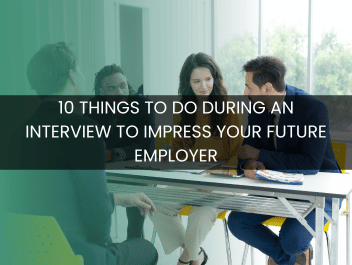

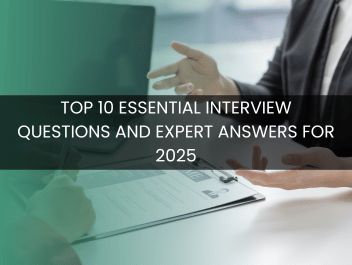






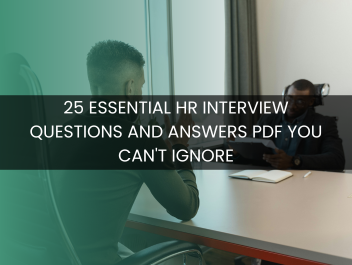

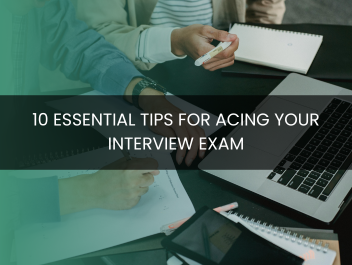

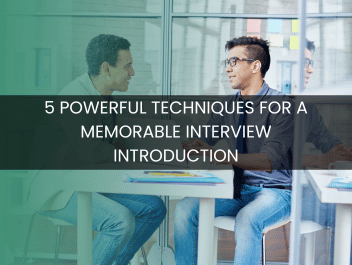
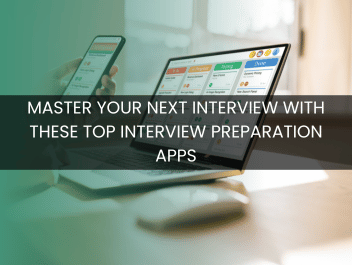






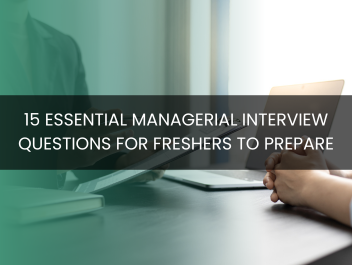


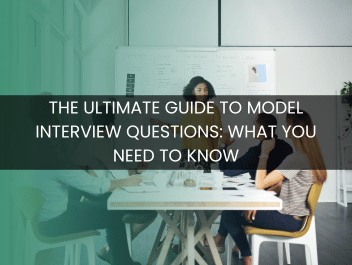


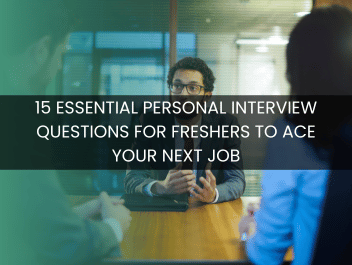


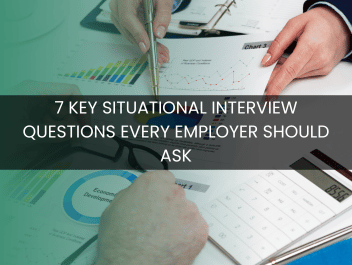

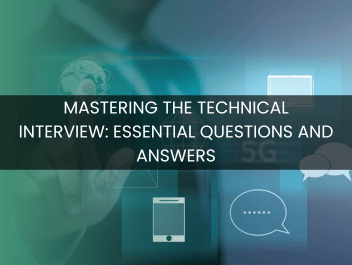
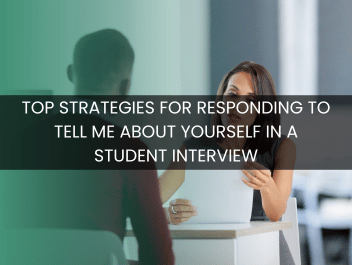
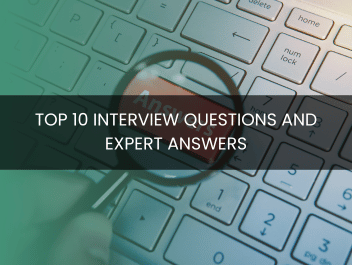


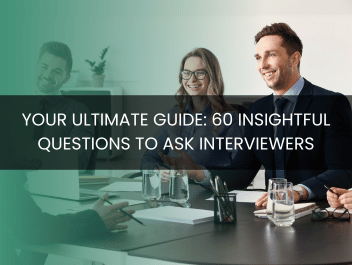






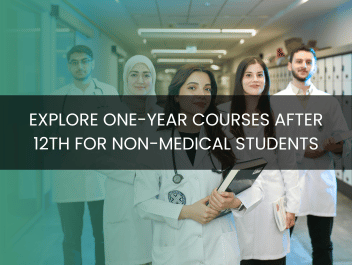

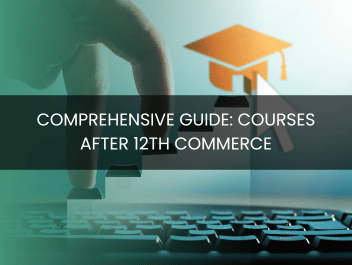















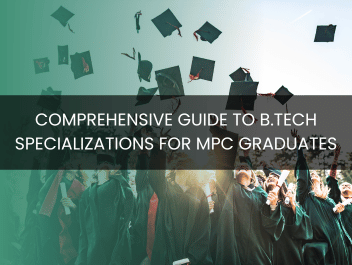


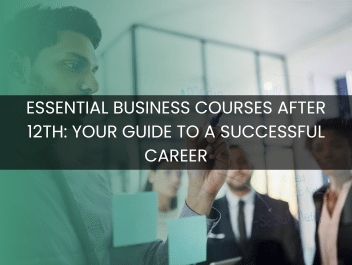




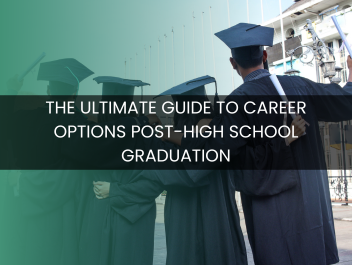

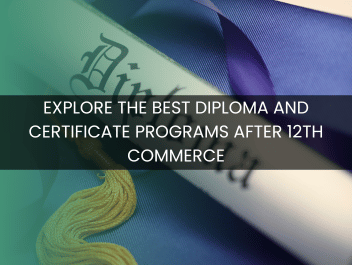

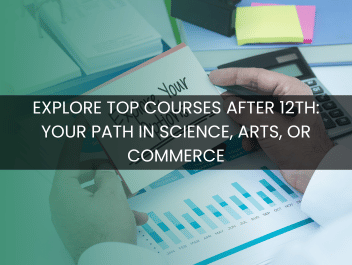


















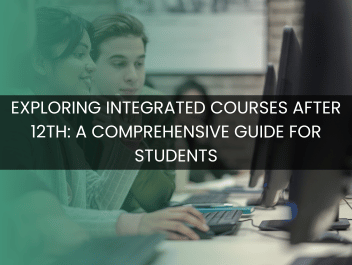




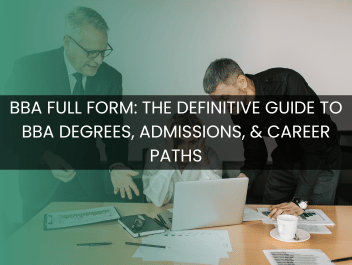

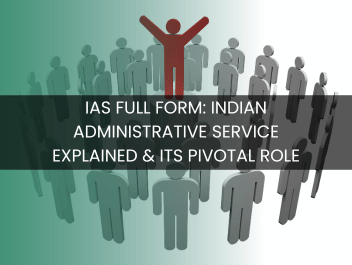









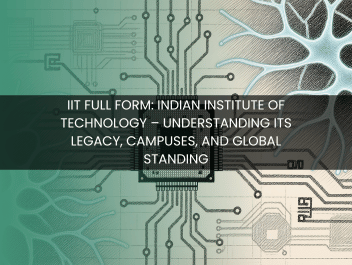
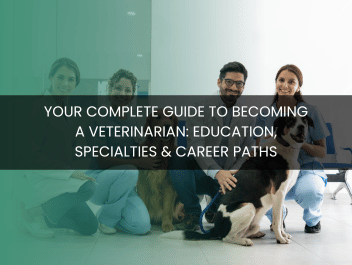




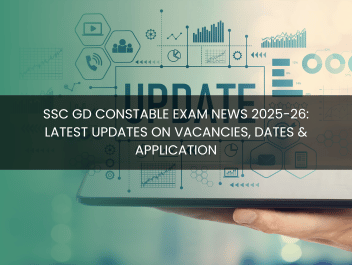


_Thumbnail_.png )
_Thumbnail_.png )








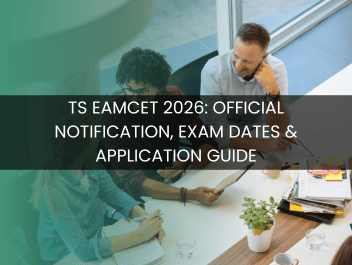
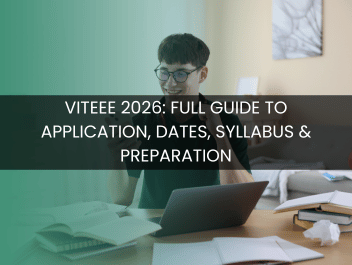

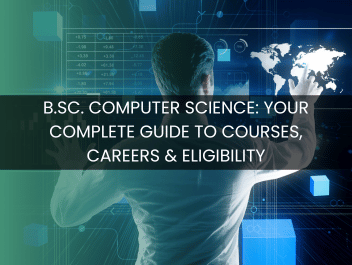


_All_You_Need_to_Know_Thumbnail_.png )






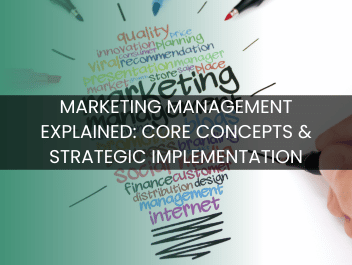
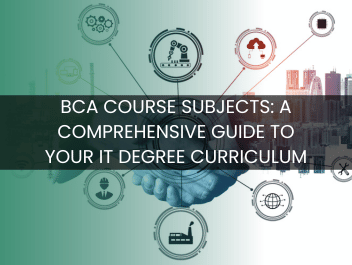

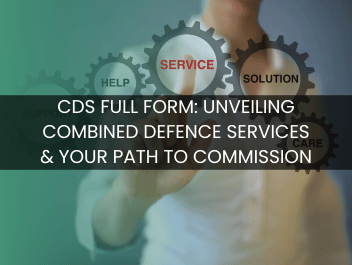
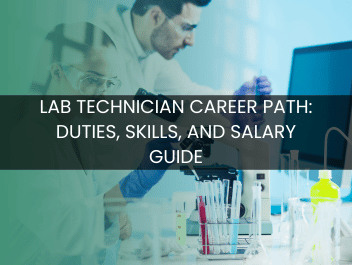
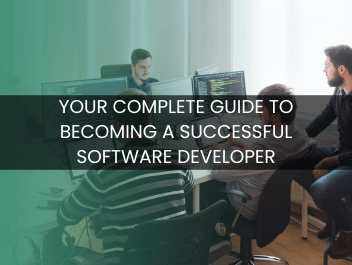







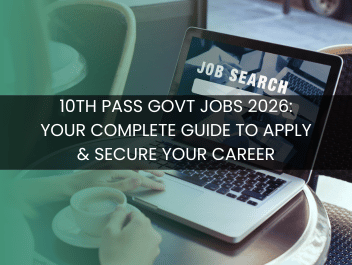

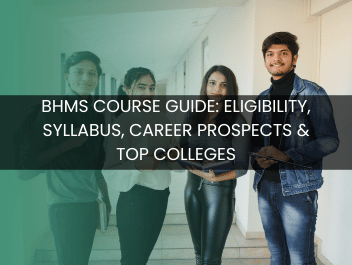
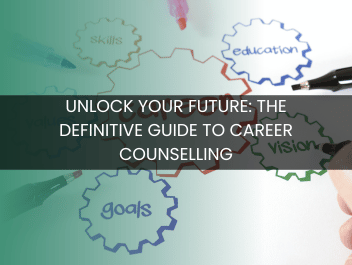

_Thumbnail_.png )

